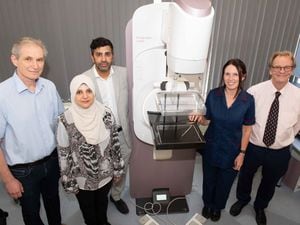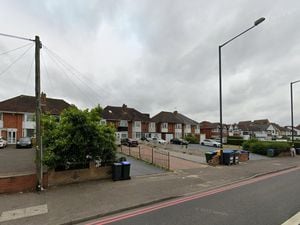First-of-its kind clinic offers those with rare cancer new hope
A first-of-its kind NHS clinic is offering rare cancer sufferers new hope as it gives clear vision on inflammatory breast cancer.

The new clinic, based at Birmingham Women's Hospital on Mindelsohn Way, will be dedicated to seeing patients who suffer from inflammatory breast cancer (IBC).
IBC is a rare, fast-growing type of cancer that accounts for one to four per cent of all breast cancers. The new clinic, opened by University Hospitals Birmingham, will be the first in the UK with a dedicated team plan to tackle this disease.
Mr Naren Basu, consultant breast and oncoplastic surgeon, said: "Inflammatory breast cancer is a rare form of cancer and is therefore not as well understood as other types of the disease.
"It is sometimes not diagnosed clearly and quickly and there are variable outcomes. For patients being able to see specialists with experience in IBC and take part in exciting new research is a real benefit."
The clinic will provide specialist care to those suffering from the rare cancer, boasting a team of experts who specialise in the field and state-of-the-art equipment.
Mr Basu continued: "UHB is well-placed to offer a comprehensive service as we have the full range of treatment options available and our relationship with the University means we can pool our expertise to find out more about this disease and its treatment."
The clinic will also work in association with a research team from the University of Birmingham, headed by Dr Fador Berditchevski. He said: "Having the IBC clinic at the University campus will facilitate our access to the valuable clinical samples and data.
"This is absolutely essential for our work on detailed genetic profiling of tumour tissues and developing novel therapeutic strategies using pre-clinical IBC cell models."
The clinic is currently accepting patients who are refereed by their GP and are then managed with an agreed treatment plan delivered by their own hospitals where local care teams can offer treatment close to the patients homes.





